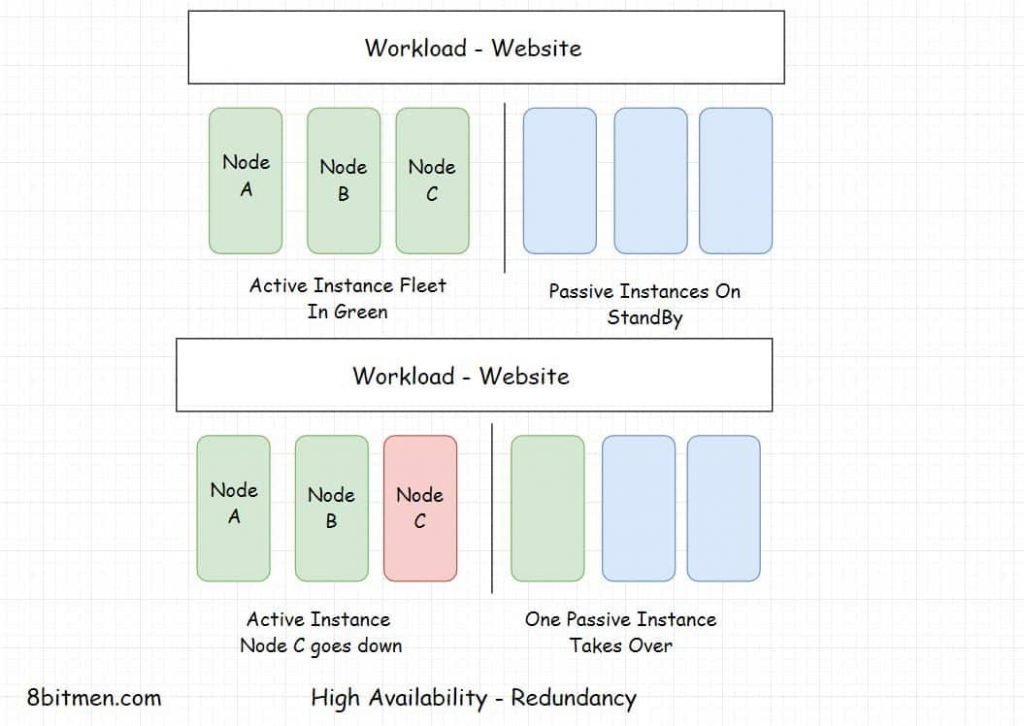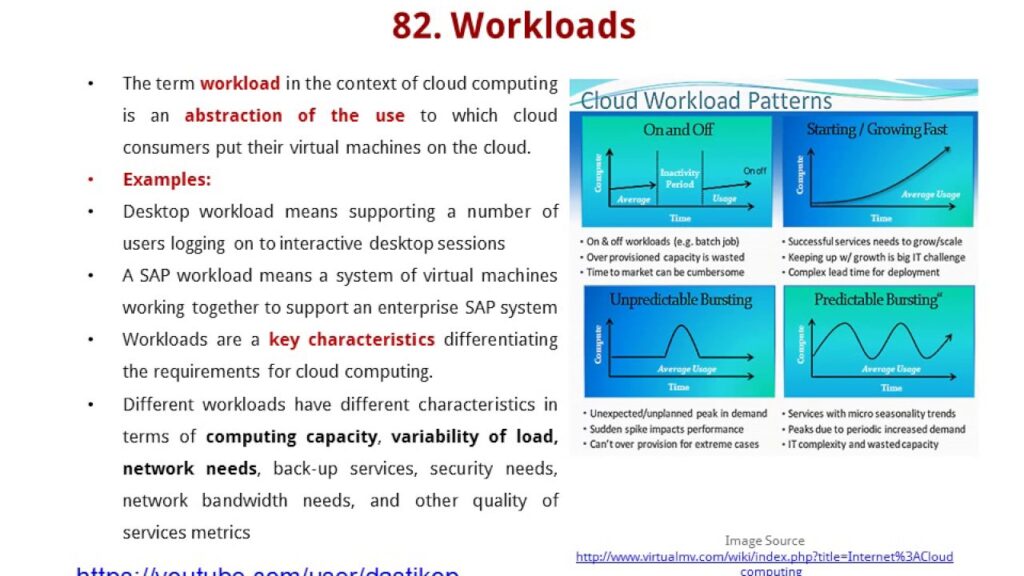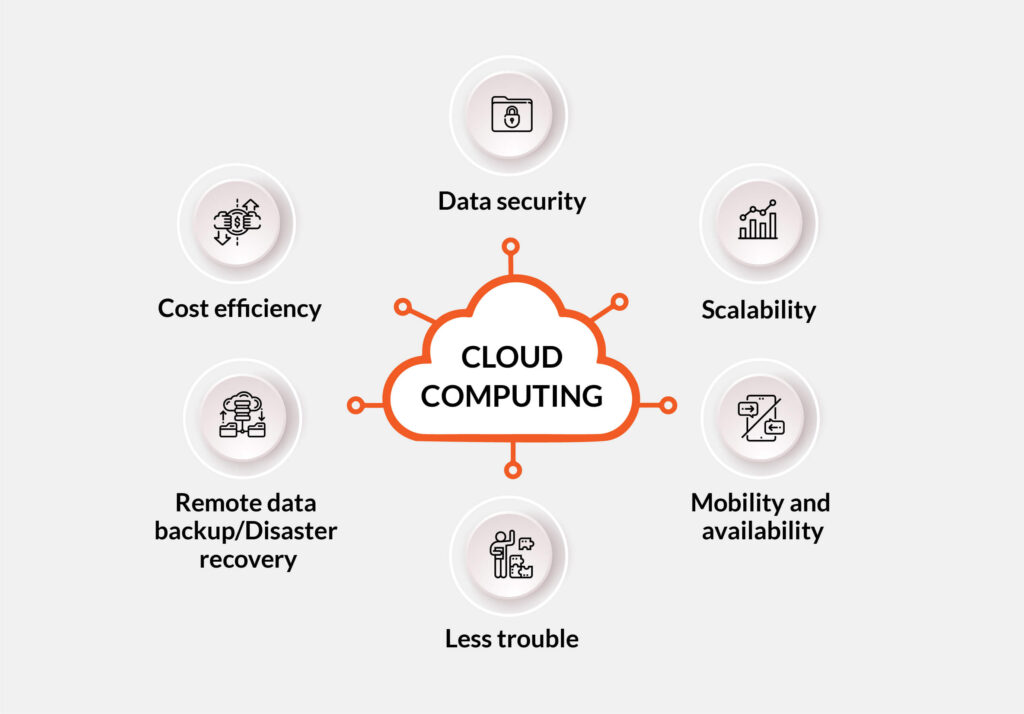Cloud computing has revolutionized the way businesses operate and store their data. With the increasing demand for cloud computing, it is crucial to understand the terms and concepts associated with it. One such term that often comes up in cloud computing conversations is an instance. An instance is a fundamental concept in cloud computing that refers to a virtual machine (VM) or a computing resource that runs a specific software application.
In simple terms, an instance is a server in the cloud that can be accessed and utilized by clients over the internet. It is a self-contained unit that operates independently of other instances in the cloud environment. Understanding the concept of an instance is essential for businesses and individuals who want to leverage the benefits of cloud computing. This article aims to explore the concept of an instance in cloud computing, its types, and how it works.
An instance in Cloud Computing is a virtual server that can be used to host applications and services. It is a computing resource that is hosted on a public cloud computing platform such as Amazon Web Services, Microsoft Azure, or Google Cloud Platform. An instance is created from an image and can be customized with different resources and configurations to meet the needs of the user.
What is Cloud Instance?
Cloud Instance is a term used to describe a virtual server running in the cloud. It is a virtual machine instance that runs on a cloud platform, such as Amazon Web Services, Google Cloud, or Microsoft Azure. The purpose of a cloud instance is to provide a computing environment that can be scaled up or down as needed and accessed from anywhere in the world.
Why use a Cloud Instance?
Cloud Instance offers many benefits to businesses, such as scalability, cost savings, and security. With cloud computing, businesses can quickly scale up and down as needed, without having to purchase additional hardware or software. This allows companies to save money while still providing the resources they need. Additionally, cloud instances are secure and provide a safe environment for data storage and processing.
What is an Instance Type?
An instance type is a specific configuration of a cloud instance. Instance types are determined by the amount of RAM, CPU, and storage that a cloud instance requires. Different instance types are suitable for different types of workloads, so it is important to choose the right instance type for the specific application.
What is an Instance Family?
An instance family is a group of cloud instances that share common hardware and software components. Different instance families are suitable for different types of workloads, so it is important to choose the correct instance family for the specific application. Additionally, instance families can be used to manage the cost of cloud computing by choosing the most cost effective instance family for the workload.
What are the Different Types of Instances?
There are several types of cloud instances, including on-demand instances, reserved instances, and spot instances. On-demand instances are the most common type of cloud instance and are billed on an hourly basis. Reserved instances are pre-purchased and offer discounts when compared to on-demand instances. Spot instances are the most cost effective type of cloud instance and are used when demand is low.
What are the Benefits of Cloud Instances?
Using cloud instances can provide many benefits, including scalability, cost savings, and security. Cloud instances can be quickly scaled up or down as needed, allowing businesses to save money on hardware and software costs. Additionally, cloud instances are secure and provide a safe environment for data storage and processing.
How to Create a Cloud Instance?
Creating a cloud instance is relatively easy and can usually be done within minutes. First, the user must select the cloud provider, such as Amazon Web Services, Google Cloud, or Microsoft Azure. Then, the user must select the type of instance, such as on-demand, reserved, or spot. Finally, the user must select the instance family and instance type. Once the instance is created, it can be used for whatever purpose the user requires.
What is the Cost of a Cloud Instance?
The cost of a cloud instance varies depending on the instance family and type. Generally, on-demand instances are the most expensive, while reserved and spot instances are more cost effective. Additionally, some cloud providers offer discounts for pre-purchasing reserved or spot instances.
What is the Best Way to Manage Cloud Instances?
The best way to manage cloud instances is to use a cloud management platform. Cloud management platforms provide a centralized interface for managing cloud resources and can be used to quickly scale up or down resources as needed. Additionally, cloud management platforms can be used to monitor and optimize costs, as well as to ensure that all cloud instances are secure and compliant.
Frequently Asked Questions
Cloud computing is a type of computing in which computing resources are made available to users on demand over the internet. It is a way of delivering computing services such as servers, storage, databases, networking, software, analytics and more, over the internet.
What is an Instance in Cloud Computing?
An instance in cloud computing is a virtual server, which is a software-defined machine that runs in a cloud environment. Instances are created from an image, and can be used to run applications and services in the cloud. Instances are highly scalable and can be dynamically created, deleted, and updated as needed. Instances are designed to be highly reliable and secure, and can provide on-demand access to any type of application or service. Instances can also be used to host websites, run databases, and provide storage.
How Does an Instance Work?
An instance is created from an image, which is a pre-configured set of software components. The image contains the operating system, application software, and any necessary configuration files. Once the instance is created, it can be used to run applications and services in the cloud. The instance can be configured with the necessary resources, such as memory, storage, and network bandwidth. As the instance is running, it can be monitored and managed remotely. Instances can also be dynamically created, deleted, and updated as needed.
What Are the Benefits of Using an Instance?
The main benefit of using an instance is that it provides a highly scalable, reliable, and secure way to run applications and services in the cloud. Instances are designed to be resilient, so they can handle high levels of traffic without any performance issues. They can also be easily configured to meet the specific needs of the application or service. Additionally, instances can be used to host websites, run databases, and provide storage.
What Are the Different Types of Instances?
There are many different types of instances available in the cloud, each with their own specific use case. The most common types of instances are compute instances, which are used to run applications and services in the cloud. Storage instances are used to store data, while database instances are designed to run databases. Network instances are used to provide secure networking between cloud resources, and web server instances can be used to host websites.
How Much Does an Instance Cost?
The cost of an instance depends on the type of instance, the amount of resources used, and the duration of the instance. Generally, compute instances cost less than storage instances, and database instances cost more. The cost of the instance is calculated based on the amount of resources used, and the duration of the instance. Additionally, some cloud providers offer discounts for long-term use of an instance.

In conclusion, instances are a fundamental concept in cloud computing. They are virtual machines that provide compute resources to run applications on the cloud. Instances can be easily created, modified, and terminated on-demand, which makes them highly flexible and scalable. With instances, businesses and organizations can easily deploy their applications and services on the cloud without the need to invest in physical servers and infrastructure.
As the demand for cloud computing continues to grow, instances will remain an essential component of cloud infrastructure. Whether you are a small business owner or an enterprise-level organization, instances can provide you with the compute resources you need to run your applications on the cloud. By understanding what instances are and how they work, you can make informed decisions about your cloud computing strategy and take advantage of the benefits that cloud computing has to offer.




